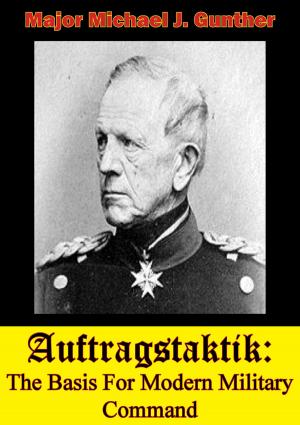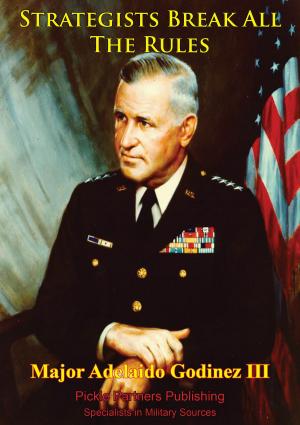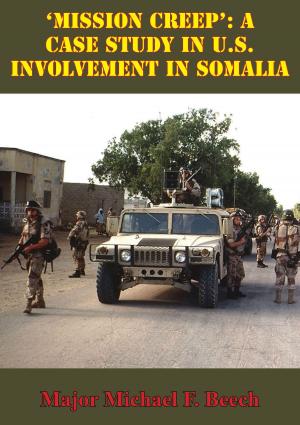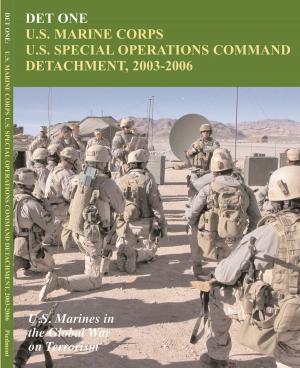Defining Critical Technologies For Special Operations
Nonfiction, History, Middle East, Persian Gulf War, Military| Author: | Major Lawrence W. McLaughlin | ISBN: | 9781782899822 |
| Publisher: | Tannenberg Publishing | Publication: | November 6, 2015 |
| Imprint: | Tannenberg Publishing | Language: | English |
| Author: | Major Lawrence W. McLaughlin |
| ISBN: | 9781782899822 |
| Publisher: | Tannenberg Publishing |
| Publication: | November 6, 2015 |
| Imprint: | Tannenberg Publishing |
| Language: | English |
As the military forces of the United States continue to draw down, Special Operations Forces (SOF) are playing a greater role across the entire spectrum of conflict. In order to maintain its relative advantage, SOF is using technology as a means to leverage limited resources—sometimes to the point that mission accomplishment depends critically on a technology’s availability. Adversaries will attempt to challenge our advantages. Whether Special Operations Forces are prepared to operate in a degraded environment could determine success or failure.
This thesis examines the issue of critical technologies in special operations. Critical technologies are defined according to three variables—level of dependence, degree of vulnerability, and substitutability. By examining technologies against these three variables, SOF can gain a better understanding of the impact to SOF operations if a technical capability is lost. Three technologies are examined to illustrate the model—the use of Radar in the Battle of Britain, the Global Positioning System, and UHF Satellite Communications.
By applying the model to actual cases, I hope to encourage SOF decision-makers to closely examine our growing reliance on vulnerable technologies as a force multiplier and provide recommendations to prevent undue reliance on those technologies.
As the military forces of the United States continue to draw down, Special Operations Forces (SOF) are playing a greater role across the entire spectrum of conflict. In order to maintain its relative advantage, SOF is using technology as a means to leverage limited resources—sometimes to the point that mission accomplishment depends critically on a technology’s availability. Adversaries will attempt to challenge our advantages. Whether Special Operations Forces are prepared to operate in a degraded environment could determine success or failure.
This thesis examines the issue of critical technologies in special operations. Critical technologies are defined according to three variables—level of dependence, degree of vulnerability, and substitutability. By examining technologies against these three variables, SOF can gain a better understanding of the impact to SOF operations if a technical capability is lost. Three technologies are examined to illustrate the model—the use of Radar in the Battle of Britain, the Global Positioning System, and UHF Satellite Communications.
By applying the model to actual cases, I hope to encourage SOF decision-makers to closely examine our growing reliance on vulnerable technologies as a force multiplier and provide recommendations to prevent undue reliance on those technologies.






![Cover of the book Air Superiority In World War II And Korea [Illustrated Edition] by Major Lawrence W. McLaughlin](https://www.kuoky.com/images/2015/november/300x300/9781786257536-KPrc_300x.jpg)








